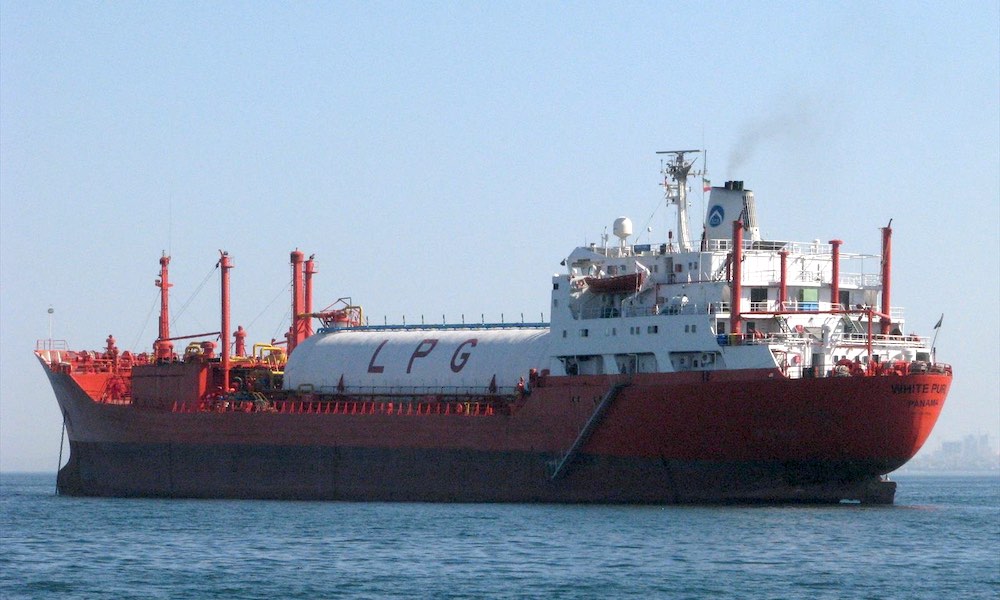By Sam Chambers
The US has escalated its crackdown on Iran’s shadow oil trade, unveiling a sweeping set of sanctions against dozens of entities and vessels linked to the illicit transportation and sale of billions of dollars’ worth of Iranian oil, some of which has directly benefited the Islamic Revolutionary Guard Corps-Qods Force (IRGC-QF).
The Office of Foreign Assets Control (OFAC), part of the US Department of the Treasury, has targeted networks that blend, disguise, and smuggle Iranian oil to bypass international sanctions, often under the cover of Iraqi origin or through ship-to-ship transfers.
At the centre of the operation is Salim Ahmed Said, a dual Iraqi-British national, who has overseen a sprawling network of companies profiting from relabelling Iranian oil as Iraqi crude since at least 2020. Said’s operations, according to OFAC, used falsified documentation, bribed Iraqi officials, and exploited UAE-based companies such as VS Tankers, formerly AISSOT, to move Iranian oil through Iraq and onto the international market.
According to OFAC, Said’s companies engaged in routine blending of Iranian and Iraqi oil, with forged vouchers issued by corrupt officials facilitating the deception. Oil was then sold to international buyers, including in the West, under the pretence of legitimate Iraqi exports.
Among the maritime assets designated today is the Marshall Islands-flagged Dijilah, operated and owned by VS Tankers. This vessel conducted multiple ship-to-ship transfers with the US-sanctioned Casanova earlier this year in the Persian Gulf.
Another asset tied to Said, VS Oil Terminal, located in Khor al-Zubayr, Iraq, has played a central role in blending oil stocks and smuggling hard currency back into Iran, according to OFAC.
Other associated firms sanctioned include VS Petroleum, Rhine Shipping, The Willett Hotel, and Robinbest, all identified as entities controlled by Said.
Today’s action also zeroes in on Iran’s global shadow fleet, targeting several vessels that have covertly moved millions of barrels of sanctioned oil. These include the Cameroon-flagged Vizuri, The Comoros-flagged Fotis LPG carrier, and the Panama-flagged Themis and Bianca Joysel tankers.
These ships, along with owners such as Egir Shipping, Fotis Lines, and Betensh Global Investment, have helped move oil primarily to Asia via coordinated ship-to-ship transfers, OFAC stated.
Singapore-based Trans Arctic Global Marine Services was also sanctioned for arranging piloting services for Iranian vessels through the Strait of Malacca, facilitating the transit of tens of millions of barrels of oil despite sanctions.
The IRGC-QF, long a target of US counterterrorism efforts, was singled out for its continued use of front companies to generate oil revenue. The Al-Qatirji Company, already sanctioned for links to the Assad regime in Syria, has facilitated oil movements using vessels such as the Elizabet, Atila and Gas Maryam.
These ships were found to be impersonating other vessels, conducting clandestine transfers, and disguising Iranian oil as Malaysian or other origins. They were managed by Seychelles and Liberia-based companies now also under sanctions, including White Sands Shipmanagement, Grat Shipping, and Dima Shipping & Trading Company.
“As president Trump has made clear, Iran’s behaviour has left it decimated. While it has had every opportunity to choose peace, its leaders have chosen extremism,” said secretary of the treasury Scott Bessent. “Treasury will continue to target Tehran’s revenue sources and intensify economic pressure to disrupt the regime’s access to the financial resources that fuel its destabilising activities.”
This marks the eighth round of sanctions targeting Iran’s oil trade since Trump issued National Security Presidential Memorandum 2, reaffirming his campaign of maximum pressure on Tehran.
